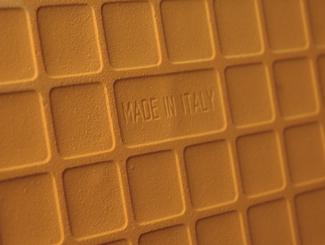 22
Luglio
2011
22
Luglio
2011
Anti-dumping duties
The Council of the European Union has given its final approval to import duties on Chinese ceramic tiles: two rates (30.6% and 69.8%) and a duration of 5 years
The European Union has given its final approval to duties on imports of Chinese ceramic tiles into the European market. The duty rate, which comes into effect on Friday 16 September and will be valid for the next five years, differs between Chinese companies that have collaborated with the survey (30.6% on average) and those that have not (69.7%).
In a procedure that began on 19 June 2010, more than 70 company questionnaires were compiled in six community countries representing an output of over 300 million square metres, more than 30% of the entire volume of the 27 European member states. It was a lengthy procedure that aimed to protect all parties concerned through a thorough investigation and also involved the United States as a control country. In 2010 European consumption of ceramic tiles totalled 970 million square metres while Chinese imports reached 63.8 million square metres with a steady increase in share (now more than 6.5%) in spite of the crisis.
“The introduction of duties is needed to restore a fair level of competition and to allow European ceramic tile producers to remain competitive in Europe in the same way as they are in foreign markets,” commented Alfonso Panzani, chairman of the European Ceramic Tile Manufacturers’ Federation CET. “This is an important achievement made possible by the cohesion of all the European Associations and by the work of the companies involved, whom I wish to thank. Praise is also due to the European Commission for its work.”
“We now expect that the five-year duties will enable a situation of free competition to be restored between the parties and will also eliminate in the conditions that made the procedure necessary in the first place,” commented Franco Manfredini, Chairman of Confindustria Ceramica. “In the meantime, the Italian ceramic tile industry will continue as in the past to make every effort in conjunction with the national institutions to further improve its competiveness through innovation, production quality and style.”
br>Now begins the no less important stage of ensuring that the measures are fully effective by carefully monitoring import flows so as to prevent illegal actions and practices aimed at circumventing the antidumping duties. According to the WTO rules, such practices may lead to the adoption of anti-circumvention measures.